|
-Rev Melissa Fain- But the Lord hardened the heart of Pharaoh, and he would not listen to them, just as the Lord had spoken to Moses. Exodus 9:12 NRSV I've lived with this question for years. I wanted to know how to save Pharaoh. If I want to save them all, I've got to want to save him too, right? Why would God harden Pharaoh's heart? Why would God allow the Plagues to continue when allowing Pharaoh's heart to soften would keep great tragedy from entering the land? If Pharaoh's heart were allowed to soften the plagues would have ended before the death of the first born. Think of the epic levels of loss on all levels. Crops were wiped out. The cleanup would take away from collecting the crops that were left. God softening Pharaoh's heart means there wouldn't be conflict leading to so much destruction. If Pharaoh's heart were allowed to soften all those first born children would not have died. I seriously only remember one full Sunday School class from my childhood. It's not that I don't remember pieces, but I can no longer connected them to the specific moment where I learned them. The Sunday School teachers, an older couple that just returned from Jerusalem, asked any first born child to raise his or her hand. I raised my hand. "You're dead," the wife said flatly to a little over half the class. (My younger sister found this hilarious.) Why would God commission death, and specifically death of children? If that heart was softened it would have been avoided. If Pharaoh's heart were allowed to soften the Israelites never would have left Egypt. Yeah, that's it. God didn't draw the line in the sand.God wanted the people out. Plague after plague had already happened and, it was the Pharaoh who didn't listen, who drew lines, that was stubborn beyond measure. God didn't harden Pharaoh's heart right away. Pharaoh hardened his own heart six times first. More than that, God didn't send some foreigner into Egyptian court. Moses would have been someone Pharaoh knew, grew up, possibly even loved like a brother. Still he was stubborn. Six times stubborn. Here's why there is no such thing as a just war. War always has a very long fuse. There are historic moments where the fuse can be extinguished. Sometimes months, but more often times years in advance. When the bomb of war finally goes off, the lines are drawn not because God wants those lines to be drawn, but because the options to peace were ignored for years. Even if Pharaoh's heart was softened, he wouldn't want peace like God wanted peace. Pharaoh didn't want God's choice. It was Pharaoh who put God on the other side, not God. And guess what? When the people finally left Egypt there were Egyptians that left with the Israelites. God's line is an ideology, not a people. God wanted freedom, and Pharaoh wanted power. How does Israel stay in Egypt?As slaves. That's it. Listen, I fully and completely believe the people are not the problem. The system the people use is the problem. The side that was just fine didn't see a problem with slavery. This was because they couldn't see. They were too comfortable to see. More than that, it didn't matter that at the seventh plague Pharaoh's heart could have softened. He wasn't going to change. It's very difficult to get people who are comfortable to give up their comfort for someone else's discomfort. It's relational. It's ignorance. If they can't feel it, most people don't understand it. Ignorance can drive a world into darkness. Ignorance can silence oppression with false righteousness. It puts fault on the abused, because anything else would change the system, a system where the ones in power want to keep their power. That must be left behind if a new people are to find their freedom. Pharaoh's heart had to be hardened, because God was separating the wheat from the chaff. The peoples had already picked their sides by the time the seventh plague came around. They had drawn the lines; not God, but God had chosen a side. This month I've been reading Walter Brueggemann's "The Prophetic Imagination." Chapter one is a great reading partner with this post.
-Rev Melissa Fain- In the past few months there have been moments where I felt I've been on the wrong side of things. Not that I've chosen the wrong side of an argument or anything, but I've found myself being on the inside of need instead of the outside. Not long after my ordination, a ministerial colleague expressed what she felt was my biggest pastoral gift: speaking truth to a system. She told me I named something no one was looking at, and correctly voiced that if nothing was done about it it would not be helpful. Now, I'm not spilling the tea here. You're not going to hear the details of that event, just that it's repeatable. On the outside of conflict, I can usually bring down the mob and calm everyone down. I understand the reasons beyond the initial conflict. (Honestly, it's probably why my favorite theology is the systematic kind, the kind that requires us to connect the dots.) February 14th marks a pretty big milestone this coming year. I'll be ordained exactly one decade. If you count my church work before the ordination, I've been focused on working for God for twenty years. Just for context, that's little over half my life, and when you consider my volunteer work before that... well, that's most of my life. With that being known, we've gotta have a pretty real conversation here. It's time for me to speak truth to this system. I've been on every side of it. I've been a Christian child, young adult, and adult. I've been a volunteer and paid staff. I've been everything from a choir director, to a youth leader to a senior minister*. I've been inside the church, in a ministry outside the church, and completely outside the system. I've seen it all. I've heard it all. I know what if feels like to be a congregant in a dying church, and I know the frustration of being a minister in a broken church. I've witnessed the heartbreak of a congregation, and mourned with them when their minister betrayed them. Yes, I have the Masters of Divinity to show I have the book smart, but I come to you with street smart to back it up. The Problem(s)There are a few problems going on in the church, and some of them overlap, which is probably why it has been so difficult to nail it down and deal with it. This will be a very honest mirror church, so it's not gonna look pretty. 1) Most of humanity will sacrifice what is right for comfort.I used to think everyone chose to join a church/temple out of the deep desire to make the world a better place and grow closer to God. In reality people join churches for a variety of reasons, and those two don't often come in first place.
Those things are comfort. They're selfish. Sometimes it's good to be selfish, and I've written on those things before, but they are not the catch-all for church. No matter what, most people don't want to truly sacrifice for anything. They don't want to actually have to build something, or create. At the end of the day, the church building is comfortable. So many of us have felt God has left the building, yet we stay because we've put the building among the assets. Why can't we fix the church inside the physical church? Ask that to the Israelites, who were called to the Wilderness. They had a building too. They had comfort, but their comfort were as slaves, and we've become sedentary slaves to our physical church. 2) No one wants in once they've been kicked out.
3) We are blind to ourselves.There was this craze in the Aughts of looking at mental illness as a television special. Hoarders, over-eaters, abusers... it didn't matter. If they were willing to get better in front of a camera, there was a show willing to be produced. We watched celebrities almost die from drug overdoses, while a few channels over we watched a woman try to explain why she needed to keep 28 used pizza boxes. It was all depressing. While maybe progress was made in the episode, usually the person sifted back into their old way of life, and some of them died from their illness. I believe the Church is suffering from a spiritual illness that is attacking the Body. Some of the overarching themes of these twenty year old shows, especially the ones about hoarders, might at least help us see the problem.
4) The Problem is always "over there."On some level, I can take the first three. I have focus with the the first three problems. Number four is the one problem that sneaks in and takes away any real power for change. Someone posts a story of church brokenness, and the Church might be outraged, and even sad. Their very friends might show the broken person specifically sympathy. Then, nothing at all happens or changes? Why? Because the problem, an entire Church problem, suddenly turned into a specific congregation problem. The congregation in question didn't hear the outrage because the church (or the person themselves) swiftly cut "the problem" out, taking away any substantial power to change the system. Eight years ago someone asked me what they could do to help my situation. I told them, "Stay." They did not stay, and it took away their power to make a congregation healthy for future ministers and congregants. Here's where the Church as a whole really turned into monsters. There is part of our call as Christians we've totally neglected since at least 1992, more than likely longer. We are called to name our failure, bring it to Christ, and die at that cross! Death is actually part of the story! Instead we take our sins, put them on a glorified scapegoat and cut those people loose to do the dying for us! HERE'S MY ANGER! HERE'S MY OUTRAGE! It's not about having a cushy job in a cushy church! You've thought that's what I'm doing this for? Once those churches cut those people out they talk about the problem in the past tense. In reality the person left, but the problem stayed to fester and grow. Some of those who left take years to realize they haven't been carrying someone else's problem. The damage is huge on both sides! What gets me the most, is Brueggemann was right in his second edition preface to "The Prophetic Imagination": A confrontational model assumes that the "prophetic voice" has enough clout, either social or moral, to gain a hearing. Currently, the old "prophetic stance" of such churches lacks much of that authority, so that the old confrontational approach is largely ineffectual posturing. Given that social reality, which I think cannot be doubted, I suspect that whatever is "Prophetic" must be more cunning and more nuanced and perhaps more ironic. -xii Here's your irony! Here's your prophet telling you in 2001 you will ignore him because the Church stopped listening to her prophets! What has that truth gotten us? Our insistence to point the finger at someone or something else means so many congregations are gasping for breath at death's door, and no one with the power to stop it cares. You have spent fifty years slowly digging your own graves. Now it's done. You sit in your pit and you'd rather starve than admit God's not in the grave. God's here with me. God's here with those you've cut loose. God is alive, on the other side of death, but for you to reach Him, you have to accept your inevitable fate. You have to admit you met death. Something will die in that grave. It will either be your old way of "church," or the Church itself. Either way, I'm done waiting. I'm done posturing. This year, I'm moving forward. I'm moving on. I'm going where God is. * The links to congregations and Christian institutions are for reference only. To link the "senior minister" job is unnecessary. It's important to know that call was to a broken congregation, but as I feel they can find healing, I don't want to put focus on them before they do.
4 John wore clothes made of camel’s hair, with a leather belt around his waist. He ate locusts and wild honey. 5 People from Jerusalem, throughout Judea, and all around the Jordan River came to him. 6 As they confessed their sins, he baptized them in the Jordan River. 7 Many Pharisees and Sadducees came to be baptized by John. He said to them, “You children of snakes! Who warned you to escape from the angry judgment that is coming soon? 8 Produce fruit that shows you have changed your hearts and lives. 9 And don’t even think about saying to yourselves, Abraham is our father. I tell you that God is able to raise up Abraham’s children from these stones. 10 The ax is already at the root of the trees. Therefore, every tree that doesn’t produce good fruit will be chopped down and tossed into the fire. Matthew 3:5-10 CEB -Rev. Melissa Fain- Every time we pick up a bible and begin reading, we are adding to the text. It is impossible not to. Perhaps we are imagining what the scene looks like. Perhaps we are adding inflection to the words. We could be visualizing how a biblical character is standing or moving. Our brains naturally fill in the gaps. It must, because rarely do we get any clue on the adjectives describing the scene. As I mentioned before, it was probably one of the things lost as the Word moved from oral tradition to written text. So there are things I am considering as I read Matthew 3. There are questions I think we need to at least consider. Questions that give us no clear answers, but add a layer of possible context to what we are reading. What happened between Zachariah discovering his wife was pregnant, and John being in the wilderness?Being a Priest was a birthright. The high priests could trace their linage back to Aaron, the first high priest. Zachariah was the real deal, and so was his son: John. Something epic happened in John's life to make him give up the "easy" path of becoming a priest, and follow the difficult path of being in the wilderness. Here is what I believe:
If this is true, it gives an added depth to the anger and resentment of the Priests throughout the bible. Jesus is not only a false prophet in their eyes, he's the one who unhinged John and got him killed. It adds a layer of humanity we often throw aside when it comes to these "children of snakes." What is the point? You can choose to accept my theory or throw it out the window. The point is to first understand there is more going on in the story than we are privy to. We are not given a complete picture, and we must fill in the blanks in some cases. Second, it's to see the humanity in those we have labeled our enemy. God loves us all. God loves Leviathan, and God loves the children of snakes. God loves the people who turn away the children of snakes. We are at the point today where we need to be a community that brings the Body of Christ together, not hack it apart even more. Today I suggested how the very people who would eventually call for Christ's crucifixion were acting in a concerned and loving way. How much more difficult could it be to see how those with a different opinion than our own could also be acting from a human way? We will be at The Daily Grind this Sunday at 2pm for your livecast! We would love to see you. If you can't be there in person, show up online on our Facebook page
24 Then Jesus said to his disciples, “All who want to come after me must say no to themselves, take up their cross, and follow me. 25 All who want to save their lives will lose them. But all who lose their lives because of me will find them. 26 Why would people gain the whole world but lose their lives? What will people give in exchange for their lives? 27 For the Human One is about to come with the majesty of his Father with his angels. And then he will repay each one for what that person has done. 28 I assure you that some standing here won’t die before they see the Human One coming in his kingdom.” Matthew 16:24-28 CEB -Rev. Melissa Fain- Most of us have at least heard of Maslow’s Hierarchy of Needs: I’m not going to spend a large amount of time explaining this. Just know, the needs at the bottom are more vital than the needs at the top. We only need creativity and spontaneity when our physiological needs, safety and security, social needs, and esteem needs are met. Like, one would concern themselves with getting food, before thinking about their safety or the friends they have. Maslow's chart is important, in that, it stopped us thinking about the negatives of the human existence, and start thinking about the positives. However, there are people who push against this pyramid. I’m one of them. Growing up, I would tell my family what I wanted. They would reply, “Yes, but do you need it?” The answer was usually no. I’ve had anything but a normal childhood. After my dad and mom divorced, I lived with my mom. She married an abusive alcoholic. Many, thank God, can’t understand that kind of situation. To simplify it, I lost weight when I should have been gaining. I had to sneak into the kitchen to get anything to eat. This was usually no more than a piece of bread with sugar on it. My sister and I had many sleepless nights, as we feared for our own safety. My stepdad and mom would scream and he would threaten all our lives. When my dad won custody my grandmother and aunt were my main female influences. Both, treated me poorly. My grandmother disowned me. She took that to her grave. She would get angry at me when I asked to get something to eat. She told me I could get anything I wanted from the fridge. (She never understood our situation with our mom, and never really tried.) Needless to say, my social needs and my esteem was shot. I engaged in a form of self-mutilation through hair pulling. No one tried to physiologically help me. No one probably realized I needed help because my creativity flourished. When I lived with mom, I needed to decorate a big paper Christmas tree for a school project, I took flour and water to make a rudimentary paste, found string and cotton balls, and worked until I got those things on the tree. It wasn’t pretty, but it was decorated. This has been my go-to throughout my life. If something needs to get done, there is always a way to figure it out. It might be with paperclips and dental floss, but it can be done. It also made me second guess needs verses wants. I am physical proof, there is something not quite right with Maslow's chart. I was hungry. I was in danger. Yet, I still found a way to be creative in areas outside of my physiological needs. Maybe there's another option... I’m going to share something I haven’t heard from anyone else. This is something I’ve formulated over a lifetime of experience, and prayer. We are used to believing needs go before wants. I blame Maslow for that. I want to suggest something completely different. Wants are more important than needs. By themselves, there is absolutely nothing in this world we need. In actuality, needs are only anchored to what we want. Let me give you an example. By itself, I don’t need to live. However, if I want to take care of my children, I need to live. If I want to make a positive impact on the world, I need to live. Our life is anchored by our greatest want, not our greatest need. Many choose life as their greatest want. If a person wants to live, they need to eat, find a safe place to live, keep themselves healthy. They need those things because they want to live. Maslow’s chart presupposes that any human would choose living as their greatest want. This is actually not the case. In reality, the triangle is upside down. We have more needs, the further we move away from our greatest want. There are people who choose comfort as their greatest want. There are others who choose to care for others as their greatest want. There are those who choose fame as their greatest want. Everything is anchored to the greatest want… unless the person has an empty want. Empty wants arise when something hooks us without context to why. It has no connection to our greatest want, and therefore, no lasting purpose in our life. This happens through empty needs. Many of these empty needs take the form of things, usually sold to us in commercials and found in the impulse isle. Sometimes, empty needs are hooked with a promise that it meets our greatest want, and just sticks around once it doesn’t fulfill what it promised. (This is the real reason many Christian’s cringe at the word “branding,” but more on that another week.) Sometimes, an empty need arises when it’s tied too often to our greatest want. For example, many American commercials today promise a quick and easy way to get what we want. Our greatest want is tied into what they are promising. Like, we want to live a long healthy life. Therefore, maybe we need to lose 5-20 pounds. A new product is promising we can lose that weight quickly and easily. All of a sudden we have a secondary want sneak into our world view. We want things quickly and easily. We can all have what we want without even trying. This sounds great, and we buy into it. Only, often times our empty wants can cause us to act outside of our greatest want. Yeah, it might be quick and easy to take that diet pill, but it’s not in line with our greatest want. A diet pill is a quick fix that won’t give us a long and healthy life. It will only temporarily take the weight off. Finally getting to that bible verse I started us all on. Jesus is asking something radical. Whatever our greatest want is, replace it with God. Think about how big that is. It’s uncomfortable. How are we going to protect our life, if it’s not our greatest want? Tell me if this phrase all of a sudden makes complete sense: “If you wish to save your life, you must first lose it.”? I believe Jesus is asking us to make God our greatest want. When we do that, everything falls into place. God wants us to relate, and work with one another. God wants us to care for our family. God wants us to care for our self. We want God, and what God wants becomes what we need. I want you to work on a chart. Make life the greatest want, and work your way up. What are the essential needs if your greatest want is life? Build it up. Write down the needs to meet needs. Wanna connect with others? Join Fig Tree on:
Facebook (We live cast the event every Saturday at 2pm EST, for those who wish to participate.) Our Subreddit “Don’t even begin to think that I have come to do away with the Law and the Prophets. I haven’t come to do away with them but to fulfill them.” Matthew 5:17 CEB -Rev Melissa Fain- We must pick up the Hebrew Bible for the sake of fulfillment. It is very difficult to understand the New Testament without these early books. It must be done before we move further into our wilderness. The Ten Commandments remain a piece of the Old Testament we can easily pull into our Christian context. We can unite under these simple truths. Don’t murder. Don’t get caught up with the stuff your neighbor has. Don’t make false idols. Don’t put anything before God’s eyes… What was that? You don’t remember that commandment? It’s right there, right before the idol commandment. What we are used to reading is, “You must have no other gods before me.” (Exodus 20:3 CEB) As a child, it confused me that we separated this commandment with the nixing idols commandment. They sound exactly the same. In an important way, they are connected. Both have to do with worship. The idol commandment is about worshiping something other than God. Early on, this would be, don't go to other temples, or raise up Golden Cows, or worship Ba'al. That sort of thing. This “no other gods before me” is directly related to what we bring in to worship our God. Quite literally, we are not supposed to bring anything but our worship and adoration before God. This commandment is discussing the Holy of Holies, the Ark of the Covenant. God’s home. When we come to God’s house, we are coming only to visit God. Now, I’ll be the first to say it is difficult to understand what is adoration and worship, and what is not. Do we worship and adore God with music? If so, what kind? Do we worship and adore God with our fellowship? What about the sermon? Is it worship and adoration? When we don’t come at the Holy of Holies with particular care, almost anything could find itself in a worship, because almost anything can be justified. This is yet another reason why we are beginning with nothing. Did you know that while the general Protestant Church has been dying to oblivion, the Lutherans, Eastern Orthodox, and Catholic Church have all been growing? These traditions would tell you it’s because there earlier understanding of the Truth is the correct one. When I read or hear from those who have chosen one of these faith traditions, this is what they generally say, “It’s not that I really believe the reason why they do what they do, but they know what they do.” In other words, if you approached a Catholic Priest, after Mass, and begun asking why certain objects were in the room, he’d be able to tell you. If you were to ask an Eastern Orthodox Priest why they do each aspect of worship, he’d be able to tell you. If you asked a Protestant why they do a Call to Worship, sit during certain times, and stand at other times… I doubt the minister could even really explain why anymore. When we can no longer explain why what we are doing is worship to God, we might not be worshipping God anymore. At least, that’s what all these “nones” (The group of people who believe in God but cannot find themselves going to church) conclude. Why we do things is just, if not more, important than what we do. Nothing makes my eyes roll faster than seeing a book titled "Simple Sermons for Saints and Sinners." The reason? Theology, and faith are not easy. One of our founding fathers, an Atheist named Thomas Paine thought faith was easily taken apart. I rolled my eyes when I read his book, "Common Sense" (Which in my mind is the same as using the word "simple" before sermons.). When he made obvious mistakes, like talking seriously about the apple in the garden, I couldn't take his argument seriously. (The garden in Genesis never talks about apples. We assume the forbidden fruit was an apple. Truth is, it doesn't say what the fruit looked or tasted like.) Therefore, when I was at Goodwill, and saw the book "Simple Sermons for Saints and Sinners" I had to pick it up. Turned out, this was just one in a series. Apparently, faith can't simply be condensed to one volume. Anyway, the last chapter caught my attention: If I were Satan.There a three theological discussions that perk my interest.
What do you think? What would you seriously or sarcastically add to this list?
15 The Lord replied, “Go! This man is the agent I have chosen to carry my name before Gentiles, kings, and Israelites. 16 I will show him how much he must suffer for the sake of my name.” 17 Ananias went to the house. He placed his hands on Saul and said, “Brother Saul, the Lord sent me—Jesus, who appeared to you on the way as you were coming here. He sent me so that you could see again and be filled with the Holy Spirit.” 18 Instantly, flakes fell from Saul’s eyes and he could see again. He got up and was baptized. 19 After eating, he regained his strength. He stayed with the disciples in Damascus for several days. 20 Right away, he began to preach about Jesus in the synagogues. “He is God’s Son,” he declared Acts 9:15-20 NRSV Movies have these cliches. Let me share some of them with you. If there is a dog in the movie, that dog will always bark at the bad guy. An action hero never ever wears prescription glasses. Bombs are usually defused only if there are less than five seconds remaining on the clock. People can drive moving cars while looking directly at the passenger. They also tend to move the steering wheel 100 times more than the average driver. In a chase scene, most women will fall down at some point. Whenever someone appears to be working on a computer, the screen is so bright it projects itself on the person’s face. Or at least, when they are accessing a computer that doesn’t belong to them, they can easily break the password by looking at the person’s desk or remember some obvious clue given in a previous scene. Also, if a bad guy wants redemption they must die for it. It has to be a sacrificial death, where it saves the good guys in the process.
Maybe this is why biblical movies are a tough sell, especially the New Testament stories. Could you imagine the pitch? Okay, so we have this guy. It turns out he is the Son of God. The Son of God, really? Does he come in and destroy the bad guy with lightening or hellfire or anything? Oh, no. He’s a pacifist. He doesn’t hurt a single person the entire movie. Right… well, go on. Anyway, he starts to gain this following. People are willingly leaving their family over this guy. Oh, so with his big following he overtakes the government, and puts a new system in place? Umm, no. In fact, the government in rule when we comes in is still the same government when the story ends. Then the followers… No, the followers mostly die terrible deaths. The bad guys… Mostly get away in the end. It’s not the story we want to hear. We want our happy endings. We want our “and they lived happily ever after.” If not, we at least want to know the bad guys were punished. That’s just not how life works, and that’s not how Jesus asked us to react to life. There are two important pieces of Jesus Christ we must understand before we can get what’s going on in our scripture. First, Jesus died. The resurrection is only as spectacular as the real death that came before it. As Christians, as a church, we are continually called to that death. When we try to emulate the resurrection without allowing our old selves to truly die, we end up with an undead church. Seriously. It’s the zombie church, and I’ve seen it over and over again. They can’t do what they used to do, but they refuse to let it go. This means they only appear alive, but they are really already gone. Until they let go, they can’t truly be reborn. They bite others, infecting congregants. I’ve spent the last few years helping the wounded. It’s dangerous stuff. Saul, the man who gathered up Christians to be murdered, died on that road. Not literally. His heart did not stop, but who he was ended in that moment. This was the future leader of the early church. Anything from that previous life, necessarily had to die. Second, Jesus came to end the cycle of violence and hate. You know what’s interesting about the place where I’m at? I hear the problem from every angle, but no one wants to take blame. So much is broken right now. The General church is broken. The region is broken. Churches all over the nation are broken. Ministers are broken. Congregants are broken… But, blame always belongs to someone else. We all have our stories about the minister, the church, the congregant, the region, or the general suck that caused the problem. Do we realize we scapegoat the problem? We place the blame on something or someone who can’t do anything about it. We can’t change the people or the long gone system that hurt us. Sure, we can put our burden on them, and send them out as our sacrifice, but it doesn’t solve the problem. Do you realize Ananias could have scapegoated Saul? He could have taken one look at Saul and said, “Oh no, Lord. That guy is the reason we are in hiding. That guy is the reason several of my friends are now dead. I’m out.” Can you see the seriousness of it all? The future of the Christian story was put in Ananias’ hands, and Ananias had justification to let Saul rot in his blindness. “You have heard that it was said, An eye for an eye and a tooth for a tooth. But I say to you that you must not oppose those who want to hurt you. If people slap you on your right cheek, you must turn the left cheek to them as well. When they wish to haul you to court and take your shirt, let them have your coat too. When they force you to go one mile, go with them two. Give to those who ask, and don’t refuse those who wish to borrow from you. “You have heard that it was said, You must love your neighbor and hate your enemy. But I say to you, love your enemies and pray for those who harass you so that you will be acting as children of your Father who is in heaven. He makes the sun rise on both the evil and the good and sends rain on both the righteous and the unrighteous. If you love only those who love you, what reward do you have? Don’t even the tax collectors do the same? The words of Jesus from Matthew 5:38-46. Do you see the potential that sits in our laps? Do you see the possibility of the future of the church? God is not asking us to heal a murderer. God is not asking us to redeem a villain. God is asking us to forgive our fellow brother or sister in Christ, and invite them back into the family, with no strings attached. What is being asked of us is not nearly as difficult as what God was asking of Ananias. Ananias did it. Ananias healed the murderous villain. In doing so the future of the Early Church took root. Can we do what God is asking of us? Can we give it up at the cross? Can we let go of the scapegoat, and personally sacrifice for the future? 11 The Lord instructed him, “Go to Judas’ house on Straight Street and ask for a man from Tarsus named Saul. He is praying. 12 In a vision he has seen a man named Ananias enter and put his hands on him to restore his sight.” 13 Ananias countered, “Lord, I have heard many reports about this man. People say he has done horrible things to your holy people in Jerusalem.14 He’s here with authority from the chief priests to arrest everyone who calls on your name.” 15 The Lord replied, “Go! This man is the agent I have chosen to carry my name before Gentiles, kings, and Israelites. 16 I will show him how much he must suffer for the sake of my name.” 17 Ananias went to the house. He placed his hands on Saul and said, “Brother Saul, the Lord sent me—Jesus, who appeared to you on the way as you were coming here. He sent me so that you could see again and be filled with the Holy Spirit.” 18 Instantly, flakes fell from Saul’s eyes and he could see again. He got up and was baptized. 19 After eating, he regained his strength. Once, there was a young girl. She was born into poverty. Her parents had immigrated to the United States to escape the great potato famine of Ireland. From an early age she suffered. She had five siblings, but two passed away at birth. When her mother passed away, her dad was a horrible caregiver. Finally, giving up, he dropped her brother and her at a poor house. Meanwhile, the girl was also blind. As a child, she was an uneducated blind girl. Anyone who would have seen her would have thought: this girl would amount to nothing. That was not the case. No one would have guessed this girl would find her way into an academy for the blind, become the top of her class, and eventually be the woman who would make the breakthrough with Helen Keller. Anne Sullivan was counted out as child, but there was potential in that soul. Potential that would change the world. Our history is often shaped by second chances, or missed opportunities. For Anne Sullivan, she was determined not to spend her life in poverty. It was during a state inspection, Sullivan convinced one of them to allow her to leave and enroll in a school for the blind. For Franklin Sanborn, the man who agreed to let her go, it was saying yes to someone who appeared like a lost cause by most definitions. I know it doesn't make sense to compare Anne Sullivan to Saul. It appears the only connection is both were blind. I want to compare their potential greatness. For that matter, anyone's potential greatness.  It is easy to see a diamond sitting in a setting, lying on a jeweler's table. Some of us can even tell the quality of the 4 C's to that diamond. Then it can be given a value. What many of us can't do is see the value of a diamond just dug up from the earth. I'm sure, many of us would think we are looking at a piece of trash. No real value at all. We like to celebrate a beautiful person. We raise them up. We give them love and adoration. We tend to forget, many of these people started out as raw, unpolished, and unrefined. They didn't grace the jeweler's table with the other precious gems. In some cases, they had a terrible and dark history. Their history was paved with the death of others. Now whether that was the fault of others, like Anne Sullivan's story, or the person was responsible, like Saul, we don't want to give our focus to these people. They are not on the inside. They are not part of the group. Newsflash, God likes outsiders. God likes the underdog. God is known to pick those on the outside to change the inside. Moses lived with the enemy before he became the liberator of the Israelites. Issac, Jacob, and Joseph were not first born children. Yet, they are the ones who inherited the birthright and changed the story. Saul was a bad guy. He watched Stephen being stoned to death! This was one of the Apostles! Before the blinding on the road to Damascus, no one within the Christian story would have seen anything redeemable in this man. In fact, he had to change his name because no one trusted "Saul." Yet, this would be the guy who would write the next chapter in the Christian story. More than any other Apostle, Paul was the biggest evangelist in early Christendom. What does that mean for us? Don't assume who are the people who are going to change the world. We can look at all those pretty diamonds out there, when we should be looking for an uncut gem. 20 After he said this, he showed them his hands and his side. Then the disciples rejoiced when they saw the Lord. 21 Jesus said to them again, "Peace be with you. As the Father has sent me, so I send you." 22 When he had said this, he breathed on them and said to them, "Receive the Holy Spirit. 23 If you forgive the sins of any, they are forgiven them; if you retain the sins of any, they are retained." John 20:20-23 NRSV This week the Holy Spirit comes up in lectionary. Speaking personally for a moment, I had a view of the Holy Spirit when I was a child. I always saw it as feminine. I can remember I used the feminine pronoun all the time. To me, God was non-gender specific, Jesus was male, and the Spirit was female. This was huge for me, as someone who was raised by a father, and no strong female influences nearby. As a child, congregants at my church would simply inquire, "Why are you saying "she"?" I'd be happy to share my theory, and they added nothing more.
It wasn't until I entered high school, and I came across an overzealous Baptist. He heard I was going into ministry. It didn't matter that my high school self believed that was music ministry, and not pulpit ministry, he was going to soundly put me in my place. Every time I met him, he came with a bible full of little dog ears. At first I discussed the passages with him, but then I realized he was cherry picking, a word here which means he was pulling a single verse without context. (Sorry, I've been reading A Series of Unfortunate Events to my son.) By that time, I had been using contextual analysis for a couple of years. It was basically the only theological tool I could use at that point. Then he came with the big guns. You know the ones: Paul and Timothy. That's when I realized he was getting outside help, probably from his minister. Once I started getting outside help, well it was over. Both of us had lost, as the conversation reached the point of absurdity. Anyway, months after our bible battle had ended he heard me refer to the Spirit as "she". "What are you doing?" He bluntly asked me. At first I didn't know what he was talking about. Once he clarified, I told him the same thing I'd been telling congregants. "You're wrong. How can God be non-gender specific, when we call him Father." Straight to the heart. Also, the Holy Spirit is a male, and I have bible verses to back it up. K.O. He destroyed me in two sentences. This is a great example of how the bible is both a tool and a weapon. When used appropriately it can heal, help, guide, and grow. Used incorrectly it can destroy people. I've been destroyed by the bible before. I don't think this kid realized what he was doing. He was doing more than getting a fellow sister in Christ on the same biblical page. He was severing a very important spiritual connection. I had no self-esteem. I believed I was worthless. I needed to understand how I was made in the image of God. If God couldn't be female, I must not be crafted in that image. Like I said, he destroyed me. The point: The spirit comes when we don't expect it. It's form is ambiguous on purpose. In the New Testament alone I can name three very different forms. Of the Earth: Like a dove that drops down on Jesus at his baptism. (I know, I know. We both know this is a really loose connection, but I loved that title so much I had to use it. Yes, it's probably the exact opposite of Earth.) Wind: In our scripture for today, Jesus breaths the Spirit on the Disciples. Fire: The Spirit lights upon the Disciples like flame. The Spirit comes to each of us outside of our knowledge and biblical know-how. It gives us what we need. A gentle drop of love and acceptance, when coming out of the baptismal waters. A promise of connection, no matter what. A fire to keep us going when all seems lost. A realization that all of us are made in God's image, no matter what. Perhaps our biggest problem today is not in what we can label, but in letting go in what we can't. 31 At that very hour some Pharisees came and said to him, "Get away from here, for Herod wants to kill you." 32 He said to them, "Go and tell that fox for me, 'Listen, I am casting out demons and performing cures today and tomorrow, and on the third day I finish my work. 33 Yet today, tomorrow, and the next day I must be on my way, because it is impossible for a prophet to be killed outside of Jerusalem.' 34 Jerusalem, Jerusalem, the city that kills the prophets and stones those who are sent to it! How often have I desired to gather your children together as a hen gathers her brood under her wings, and you were not willing! 35 See, your house is left to you. And I tell you, you will not see me until the time comes when you say, 'Blessed is the one who comes in the name of the Lord.'" Luke 13:31-35 NRSV Our scripture today hits me.. Let’s take it apart.
Now earlier in scripture Luke makes a point to say that Jesus was still travelling. The end goal was Jerusalem. In our scripture for today, he is currently in Galilee, which is ruled by Herod. When we think Herod we often think of the baby killer in the beginning of Matthew. This is not the same guy. The Herod in Matthew was incredibly narcissistic. He named multiple children, including females after himself. This Herod is one of his sons. This is the son that beheaded John the Baptist and married his own niece. (The apple doesn’t fall far from the tree, right?) Anyway, this Herod had no desire to kill Jesus. In actuality, he just wanted to see him. Eventually, when Jesus was arrested, Herod finally gets his chance, and sends him back to Pontius Pilate. So why are the Pharisees telling Jesus to leave, or Herod will kill him? He was already headed out of town, and Herod had no desire to kill Jesus? Because, like many things the Pharisees did, it was a trap. Jesus was a known prophet. If he ran from Herod it would look like he didn’t have God’s power behind him. Therefore, he would appear as a false prophet. If he faced Herod to speak with him, it would make a people who were already angry with Herod (he was the guy who used the temple tax to put a Roman Eagle at the entrance to the rebuilt temple) they would be enraged with Jesus. Like all the other traps, this one looked impossible to break free from. Jesus’ response is interesting to me. First, I believe he gets angry, or at least frustrated. I say this, because a fox was not one of the good animals to be associated with. In his frustration he defuses the bomb. He’s not running out of town. He’s not seeing Herod. Instead he basically says, “I have work to do. We both know nothing is going to happen. Leave me alone.” I don’t know if I’m alone here, but when I’m frustrated it tends to spill over into other areas. Like, I might be frustrated a project I’m working on isn’t going the way I want. Well, then I recall other projects that didn’t work. Sometimes that leads to getting frustrated at things that don’t deserve my frustration. Like, I might unfairly get frustrated at the ones I love, and that usually leads to me apologizing. Jesus’ frustration spills over to Jerusalem. The city that “kills the prophets, and stones those that are sent to it.” See that phrase at the top of the page? When one feels sorrow instead of anger, you are on the Christian path. In Jesus’ frustration, he begins to lament the very people who would eventually kill him. Most would react a bit different than Jesus did. A group of people want you dead, you call those people your enemy. A group of people don’t want to listen to what you have to say, and just call you a liar, you unfriend them. In an act of radical love, Jesus still wants them to be included in God’s family. It’s a lamentation. He is literally walking to his death, and he is weeping for those who will crucify him. What do we do with that? We have to find that sorrow for those who have hurt us. Why? Often times, the ones who have hurt us are hurt too. There comes a time where it is more important to do what is right than what is fair. It’s not easy. Easy is biting back, taking revenge, or living in the pain of the past. There comes a time where we are called to that radical love of forgiveness: When we end that cycle of brokenness and abuse, so we don’t end up being the ones who hurt someone in the future. When we weep for those who haven’t found that true peace yet. When we no longer see enemies, or outsiders, but simply people who haven’t accepted God’s love in the Body of Christ. It’s accepting our ability to wound others; in our imperfection, we are fallen creatures. We try our hardest to follow God’s will, but our hardest will never be perfect. It is in our own humility we can find forgiveness for others. You cannot change who you were. You can only make actions now, to try to live into God’s purpose. It’s a purpose that doesn’t belong to me, or you. It’s God’s plan, and it requires letting go. Let go. It’s time. |
Categories
All
Archives
October 2023
|





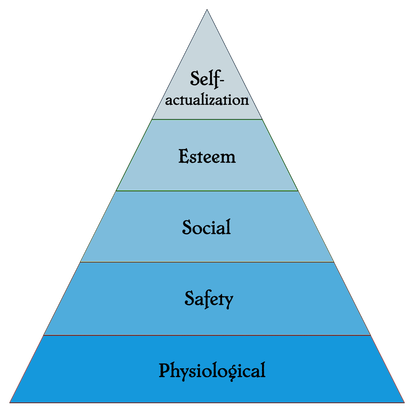
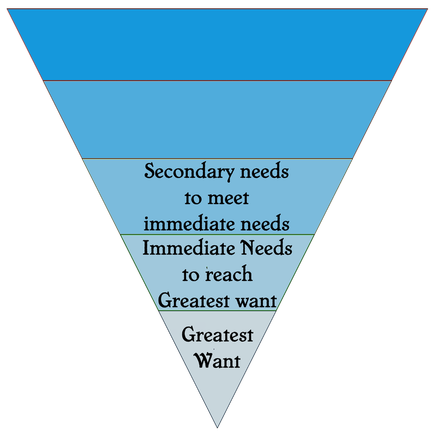
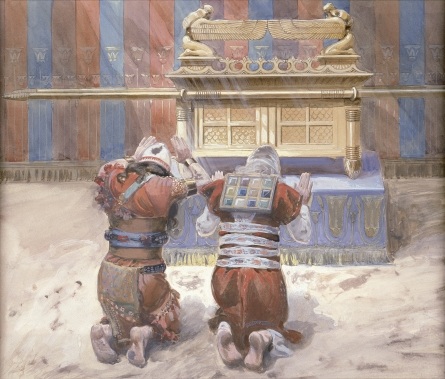
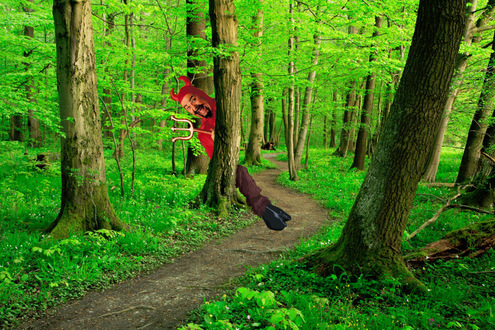
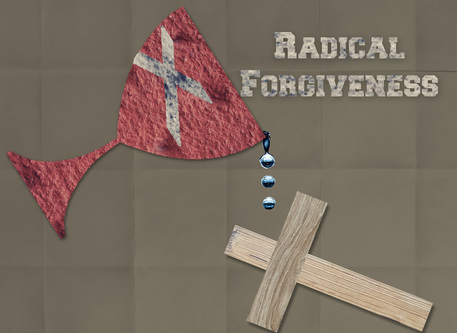
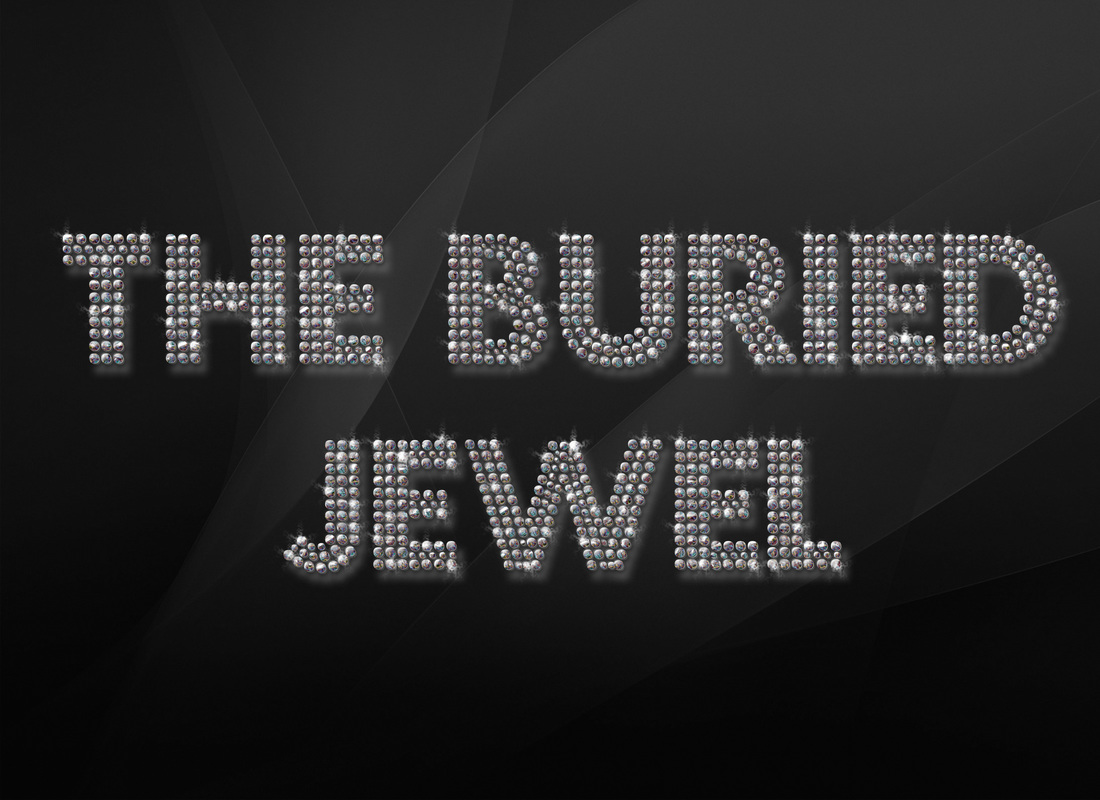

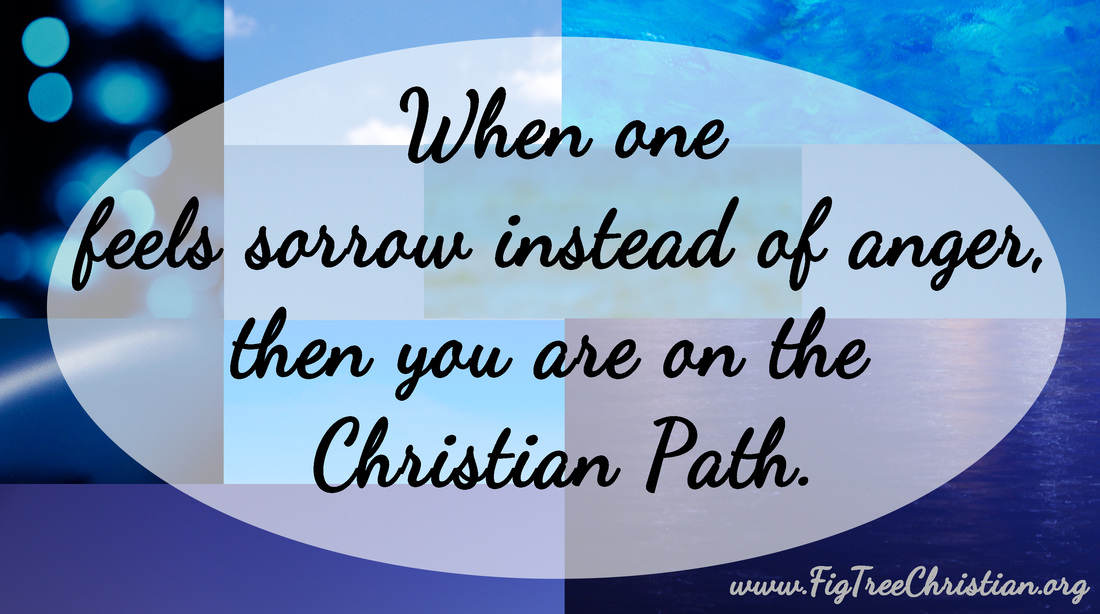

 RSS Feed
RSS Feed